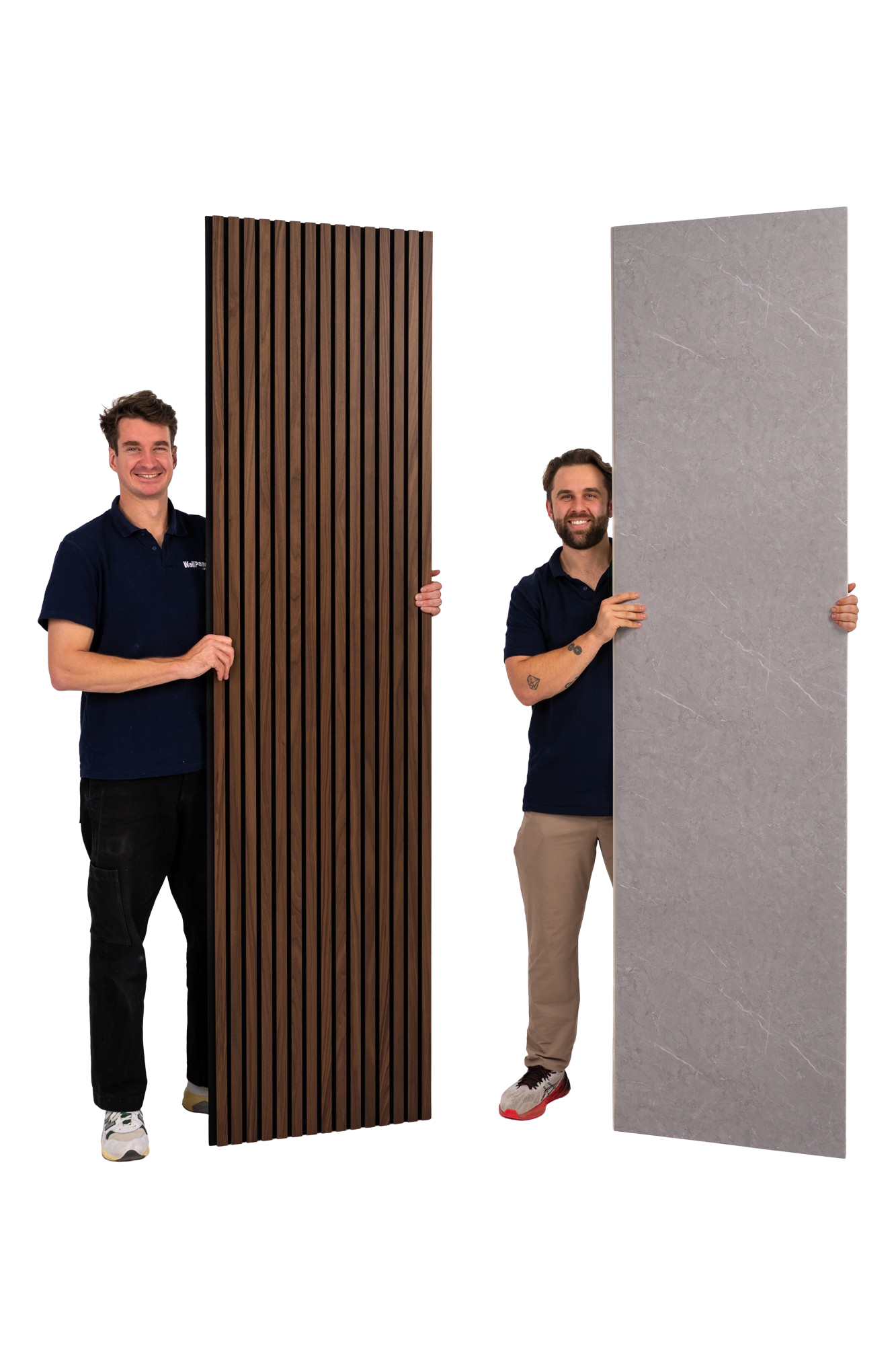Wet wall panels are an affordable, convenient way to have a luxurious look in your bathroom. They are completely waterproof, making them ideal for bathrooms and shower rooms. One of the biggest draws for PVC panels is that you can install them with minimal tools or experience.
Once you've made sure that your surface is correct for installation, plan out how you're going to cut your panels:
Measure the wall
The first step is accurately measuring the space where you want to install panels. Get a tape measure for an exact measurement of the length of your wall. If your wall is long enough to have just a sliver of a panel at one end, we recommend cutting your first wall panel in half when applying it to create a more balanced look.
Pro tip: Measure twice, cut once.
Here are some basics to have when preparing to cut your bathroom wall panels:
- A flat, sturdy surface
- Enough room to cut panels
- Safety goggles if you’re using power tools
- A pencil for marking your panels
- A spirit level
When you have the correct measurements and know how much you need to trim your panels, there are a few different methods to consider.

Cutting with a fine-toothed saw
One popular way to cut wall panels is using a fine-toothed saw. We recommend cutting with the panel placed decorative side upward if using a fine-toothed saw so the teeth don’t leave scratches. Handheld saws provide control, but sawing too fast can result in an uneven edge. Cut slowly to get the best result. Practice on some scrap panels or wood to ensure you know how to use the saw before making the final cut.

Cutting with a tenon saw
Tenon saws provide a very stable cut. Cutting slowly with a tenon saw can give you a clean, neat line for your panels. If you have limited tools, a tenon saw is an affordable choice for this project that’s great for anyone new to DIY. Using a tenon saw can make customising your panels to fit snugly around a window, door, or irregular bathroom fittings easier.

Cutting with a jigsaw
Trimming your PVC wall panel with a jigsaw is another option if you don’t have a fine-toothed saw. For this method, place the panel’s decorative face down. The teeth on a jigsaw cut more on the upward motion, so this orientation protects the design the most effectively. Use a saw blade with fine teeth and practise some cuts to get your speed and pressure right.

Cutting with a mitre saw
A mitre saw offers precision and power that can trim several wall panels simultaneously. Installing a blade specifically designed for leaving fine cuts in materials like PVC is the best way to use a mitre saw. Standard blades that come with the saw are often too coarse for trimming PVC and leave rough edges that take a long time to sand down.

Cutting with a circular saw
Using a circular saw is different to a mitre saw because it is portable and handheld, rather than being stationary. You have excellent control over movement with a circular saw. If you’d like greater precision and speed, use a track with your circular saw. A circular track saw works like a large guillotine, making it easy to trim your panels accurately and quickly. Use a fine wood blade when using a circular saw.

Cutting with a Stanley knife
Cutting your wall panels with a Stanley knife is an easy, affordable way for anyone without an extensive tool kit. Draw a straight line directly onto the decorative face of your panel where you’d like to trim. Slowly score the line with your cutting tool, keeping the knife blade pointed away from your hands and face. You can snap the panel along the scoring fairly easily.
Dry fitting the panels
After you cut each panel you should be dry fitting it on the wall before you apply adhesive. This ensures that the cuts you made were correct. It will save you some big headaches in the long run.






Leave a comment
All comments are moderated before being published.
This site is protected by hCaptcha and the hCaptcha Privacy Policy and Terms of Service apply.